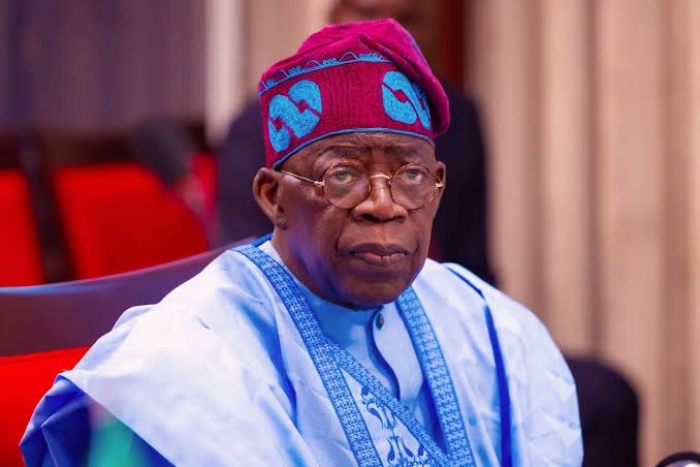Nigeria faces an unprecedented debt crisis as President Bola Tinubu pushes for another massive borrowing binge, requesting Senate approval for a staggering $21.5 billion in new external loans alongside N758 billion in domestic bonds. This alarming development threatens to push Africa's largest economy deeper into a dangerous debt spiral that could cripple future generations.
The president's latest borrowing requests, presented to the Senate on Tuesday through letters read by Senate President Godswill Akpabio, represent a continuation of what economists are calling a reckless fiscal trajectory that has already seen Nigeria's debt burden explode under Tinubu's administration.
A Debt Explosion Under Tinubu's Watch
The scale of Nigeria's mounting debt crisis under Tinubu is nothing short of alarming. In less than two years since taking office, his administration has added a crushing N56.6 trillion to the nation's debt burden - money borrowed from the N87.379 trillion debt stock left by his predecessor, Muhammadu Buhari, to reach a staggering N144.67 trillion by December 2024.
This represents a catastrophic 48.58 percent increase in national debt within a single year, with external debt alone skyrocketing by 83.89 percent. The proposed new borrowing of $21.5 billion would add approximately N38.24 trillion more to this already unsustainable debt mountain, potentially pushing Nigeria's total public debt beyond N182.91 trillion by 2026.
The Dangerous Mathematics of Debt
The numbers paint a terrifying picture of fiscal irresponsibility. At the current exchange rate of N1,583.74 to the dollar, Nigeria's external debt has ballooned from N38.22 trillion in December 2023 to N70.29 trillion by December 2024. The new borrowing alone makes up around 60 percent of the total spending in the 2025 budget - a clear indication that Nigeria is essentially borrowing to survive rather than to grow.
Perhaps most troubling is that N14.3 trillion of the N54.2 trillion 2025 budget has been earmarked for debt servicing - meaning over a quarter of government spending will go toward servicing existing loans rather than providing essential services to citizens. This debt service allocation already exceeds capital expenditure, creating a vicious cycle where borrowing crowds out productive investment.
A Pattern of Borrowing Without Accountability
Tinubu's justification for the massive borrowing centers on addressing infrastructure deficits and economic shocks from subsidy removal. The funds, he claims, will target railways, healthcare, agriculture, education, and other critical sectors across Nigeria's 36 states. However, this reasoning rings hollow given the government's poor track record of accountability for previous borrowings.
Civil society leaders have raised damning questions about the fate of earlier loans, including a $3.4 billion IMF facility secured during the COVID-19 pandemic. "The government continues to borrow, and it cannot prove to Nigerians what they are doing with the borrowing," warned Auwal Musa Rafsanjani, Executive Director of the Civil Society Legislative Advocacy Centre.
Economic Experts Sound Alarm Bells
Leading economists across Nigeria are expressing grave concerns about the sustainability of this borrowing spree. Muda Yusuf, CEO of the Centre for the Promotion of Private Enterprise, warned that "debt service is already far more than the appropriation for capital spending," describing the trend as deeply worrying for Nigeria's fiscal health.
Johnson Chukwu of Cowry Assets Management Limited highlighted the critical risk that inefficient deployment of borrowed funds could transform what should be growth catalysts into economic burdens. The proposed loans could increase Nigeria's foreign debt by 50 percent, making the country even more vulnerable to exchange rate fluctuations and global economic shocks.
Vahyala Kwaga from BudgIT delivered perhaps the most sobering assessment: "Adding this new debt to our current total debt will push Nigeria to its self-imposed debt-to-GDP limit of 40 percent." This would place Nigeria dangerously close to debt distress levels that have plagued other developing nations.
A National Assembly Enabler?
The response of the National Assembly to this borrowing request will be a crucial test of institutional independence. Critics like Emmanuel Onwubiko of the Human Rights Writers Association of Nigeria have already condemned what they see as a "rubber-stamped National Assembly" that fails to provide adequate oversight of presidential borrowing requests.
Senate President Akpabio has referred both requests to the senate committee on local and foreign debts, with a two-week deadline for reporting back. However, given the historical pattern of legislative approval for executive borrowing requests, there are serious concerns about whether adequate scrutiny will be applied.
The Pension Bond Diversion
Adding to the debt concerns is Tinubu's separate request for N757.9 billion in domestic bonds to settle pension liabilities under the contributory pension scheme. While addressing pension arrears is important, using borrowed money to fulfill basic government obligations highlights the administration's cash flow problems and raises questions about fiscal priorities.
The president acknowledged that the federal government has failed to comply with the Pension Reform Act 2014 "over the years due to revenue challenges," yet the solution proposed is more borrowing rather than fundamental revenue reforms or expenditure rationalization.
A Bleak Economic Future
The trajectory Nigeria is on under Tinubu's borrowing-heavy approach threatens to mortgage the country's economic future. With external debts now comprising 48.59 percent of total public debt and the Naira's continued depreciation making dollar-denominated debt service increasingly expensive, Nigeria risks falling into a debt trap that could take decades to escape.
The lack of transparency in debt utilization, combined with the massive scale of new borrowing requests, suggests an administration more focused on short-term fixes than sustainable economic development. As debt service costs consume an ever-larger share of government revenues, less money remains available for the very infrastructure and social programs that borrowing is supposed to fund.
Nigeria's debt crisis under Tinubu represents a clear and present danger to the nation's economic sovereignty and future prosperity. Without immediate course correction and genuine accountability measures, the country risks joining the ranks of heavily indebted poor countries unable to break free from the cycle of borrowing and debt service that strangles economic growth and development.


































































